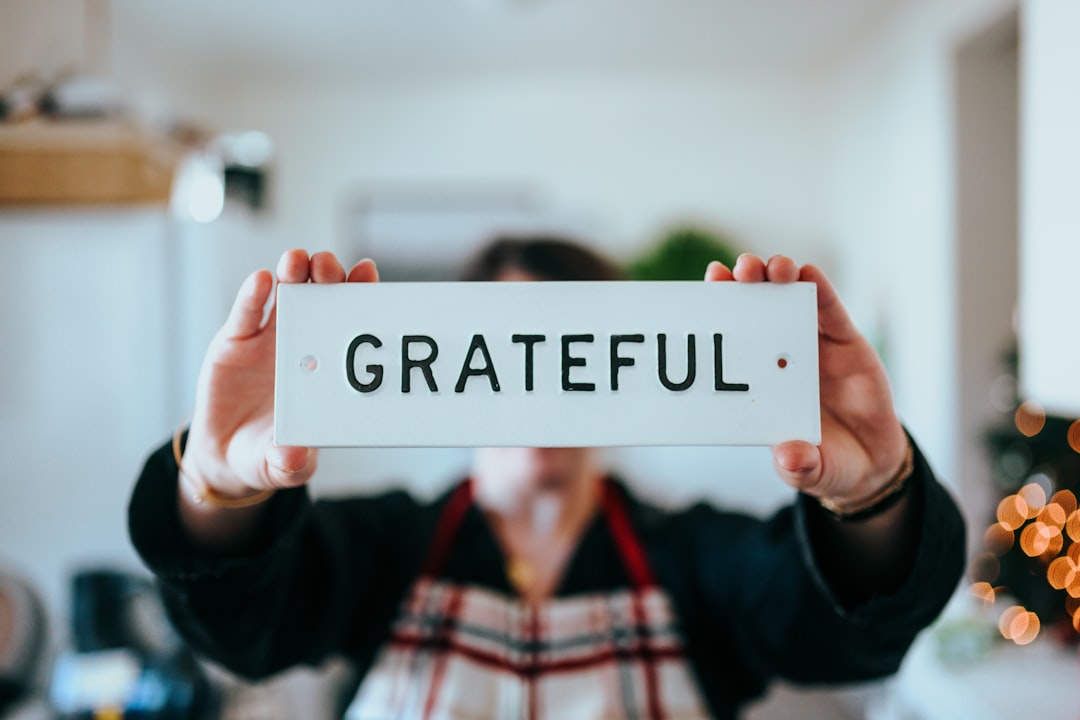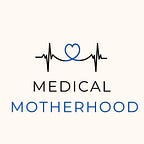
Thanksgiving is a holiday of food and gratitude. This is a time of year that I count my blessings, reminding myself that even when all is dark, a light still shines.
Gratitude researcher Robert Emmons says that gratitude is a way of seeing the big picture and not getting overwhelmed by the day-to-day struggles.
For most of us, it takes conscious effort to be grateful. Gratitude is hard. And gratitude does not excuse injustice. And gratitude is not weak.
“In fact, gratitude can be very difficult because it requires that you recognize your dependence on others, and that’s not always positive,” Emmons writes. “You have to humble yourself, in the sense that you have to become a good receiver of others’ support and generosity. That can be very hard — most people are better givers than receivers.”
While raising any child is difficult beyond measure — and rewarding beyond measure — I would argue that in both of those realms, parenting a disabled child is even more so. Our lows are lower but our highs can be higher.
For today’s issue of Medical Motherhood, let’s talk about the best parts of raising disabled children.
‘Realness’
It’s a certain je ne sais quoi, but I’ve found that most people raising disabled children have a way of skipping all the fakeness in conversations. They just don’t have time for it. Maybe it’s because their hands are too full or maybe it’s because pleasantries just don’t matter after you’ve seen your child in a hospital bed. Whatever it is, I love it. Small talk is overrated. Let’s get real.
Black humor
There’s only so much hardship a human can take. Thankfully, our brains give us a very effective stress relief mechanism: laughter. I can’t tell you how many times I’ve laughed with other medical mamas about things that no one else would understand. One of my favorites was when someone was describing a bad day and said they might just never get up off the kitchen floor. Another mama said: “Laying on the kitchen floor though. Closer to ice cream.” I still think about that and laugh about every other week: The bright side of desperation.
Awareness
The disability community is a vast and varied spectrum. For some reason, mainstream society lumps everyone outside of their narrow bump of the bell curve together, so for a long time I thought of abilities as pretty black and white. But since becoming a medical mama, I’ve learned so much more about how many different ways there are to be beautifully, amazingly, fantastically human.
Empathy
I thought I was pretty open and understanding before I had kids — and it’s not like I’m perfect today — but living this life has opened my eyes to how much privilege I had and assumed other people had, too. Now when people talk about their struggles, I usually “get it” on a level I never would have otherwise.
Humility
I have had to ask for a lot of help since the birth of my twins. Whether it’s fundraisers or places to stay or medical care or physical help, medical motherhood has been a long lesson in accepting that I can’t just do it all. Like Emmons says above, this is not easy. But watching people respond to those calls for help — sometimes even complete strangers — has been some of the most powerful experiences in my entire life. If you have never been in desperate need then you have never known the amazing healing power of someone meeting that need.
Community
If you’ve ever spent time abroad, you probably know about the ex-pat phenomenon of feeling camaraderie with any fellow countrymen you happen to come across. Something about being strangers in a strange land erases any differences you might have otherwise considered important. It’s the same with medical parenthood. As soon as I learn someone has had an intensive caregiving experience, too, it’s like we shift into a different gear.
Surprise celebrations
When milestones are so far off the accepted timeline, they cease to matter. As a parent, you drop out of the competitive rat-race that starts with baby’s first steps and ends at pro soccer. Or, rather, that starts with baby’s first word and ends with scholarships to MIT. Instead, you can celebrate each “inchstone” and wherever it may be leading because none of it is taken for granted.
Anti-ableism
I did not think I was ableist before I had my kids. That quickly changed when I realized just how scared I was of having a kid who might be called the “r-word.” Prejudice is so much more apparent when it’s about you or the people you care about. I feel lucky to have learned the difference between thinking I’m not prejudiced and doing the hard work to root out some hidden assumptions and beliefs. It will still be a lifelong struggle, but I am grateful to have been given new lenses through which to see the world.
A life of service
Service is sacred. Don’t believe me? Ask the leaders of pretty much any religion.
All humans are interconnected. We all need things that have to be provided by someone else. When you raise a disabled child, this service relationship takes primacy. While it is difficult, and no one is immune to the effects of burnout, it is also beautiful. I see so many people who find their life’s purpose and heart’s contentment in medical parenthood.
What about you? What are you grateful for in this uncommon journey? Leave a comment below the news briefs (this is a paid subscriber perk — click link for our 30 percent off sale on now), or post about it on social media. …And: Thank YOU! I am grateful to have you as a reader.
A version of this essay appeared in the Nov. 28, 2021 issue. Archives from the first year of publication are available for paid subscribers only. Become one today with our 30 percent off sale.
Medical Motherhood’s news round up
Snippets of news and opinion from outlets around the world. Click the links for the full story.
• From AL.com (Alabama): “Federal complaint: ‘Extreme barriers’ for Alabama adults, children with disabilities to access care”
The Alabama Disabilities Advocacy Program has filed a federal complaint against the Alabama Department of Senior Services, alleging that the agency places “extreme barriers” on disabled children and adults who are trying to access Medicaid services.
The failure to provide services can have serious consequences and the need for reform is urgent, ADAP alleges; two potential clients died while lawyers were preparing the complaint.
The Elderly and Disabled Waiver, which is administered by ADSS and the Alabama Medicaid Agency, helps families receive long-term care in their communities that once were only available in institutional settings. The waiver can pay for in-home medical devices like ventilators and feeding tubes, as well as pay for nurses and health care providers to oversee treatments.
But according to ADAP, the Department of Senior Services has failed to properly administer the waivers over the last three years due to “the failure at the highest level of ADSS to develop and maintain standard procedures for how to administer their waiver programs.”
The advocacy organization, which is representing 13 families in their complaint to the United States Department of Health and Human Services, says the Alabama agency has denied clients services without due process, misrepresented what services are available to families and what services they are entitled to and failed to maintain enough health care providers in their system, leaving family members to have to oversee medical care which can be so time intensive it forces them to leave their jobs.
• From The Oregonian/OregonLive: “Oregon RSV hospitalizations leave state, hospitals and parents juggling uncertainty and fear”
Amid the worst RSV season on record, Oregon pediatric hospitals are already stretching staff thin to care for all young patients who need specialized care. But health officials believe the situation is going to get worse in coming weeks, and it’s unclear what the state and hospitals will do if the influx of respiratory syncytial virus cases reaches a tipping point.
“Hospital resources are not infinite,” the Oregon Health Authority’s Dr. Melissa Sutton said in an interview Friday. “At some point, we might reach a scenario in which there is not a hospital bed available.”
[… OHSU pediatric specialist Dr. Eliza Hayes] Bakken said parents should watch out for the following three key signs of distress when deciding whether to take their children with RSV to the emergency room: If the inside of the infant’s mouth is blue, they aren’t getting enough oxygen, and need immediate care. If they appear to be trying to use their stomach or rib or neck muscles to breathe, that also means they’re not getting enough oxygen. And if they aren’t taking in or holding down fluids, they also need to see a doctor.
• From Kyodo News (Japan): “FOCUS: Japan faces long, difficult road to promote inclusive education”
Satoko Tachibatake is convinced she made the right decision to have her intellectually disabled son attend a regular school with classmates without disabilities, although doing so remains a rare step in Japan.
Like many other disabled children, Tachibatake's 8-year-old son Go, who has Down syndrome, was pointed toward a special needs school by local education authorities as he was judged to have difficulties communicating with words.
What made Tachibatake defy the recommendation was an encounter with a member of a group of parents who also have children with Down syndrome. The member said it is essential that such children associate with those without disabilities in order to function as capable adults later in life.
[…]According to the education ministry, the number of children who receive education in special needs classes or schools has been rising in Japan, bucking the international trend for promoting inclusive education where all children study in the same classrooms.
[….A United Nations] committee recommended Japan "adopt a national action plan on quality inclusive education, with specific targets, time frames and sufficient budget to ensure that all students with disabilities are provided with individualized support at all levels of education."
It was Japan's first time to be subjected to a review since ratifying the Convention on the Rights of Persons with Disabilities in 2014.
Following the recommendation, education minister Keiko Nagaoka said the government will promote inclusive education but also said, "We do not intend to end special needs education, which takes place in diverse learning environments."
Yoshihiro Kokuni, a professor at the University of Tokyo's graduate school of education, said the U.N. recommendation was "an extremely appropriate evaluation," as it was issued after around 100 people consisting of disabled people and their families visited Geneva to exchange views with U.N. panel members.
"Japan is very behind" on the recognition of inclusive education, said Kokuni, a specialist in education. "It's a question of social justice," he said, "not creating a more effective society or one that guarantees a more effective learning environment."
Medical Motherhood brings you quality news and information each Sunday for raising disabled and neurodivergent children. Get it delivered to your inbox each week or give a gift subscription. Subscriptions are free, with optional tiers of support. Thank you to our paid subscribers!
Follow Medical Motherhood on Facebook, Twitter, TikTok, Instagram or Pinterest. The podcast is also available in your feeds on Spotify and Apple Podcasts. Visit the Medical Motherhood merchandise store.
Do you have a story to share or an injustice that needs investigation? Tell me about it and it may become a future issue.












